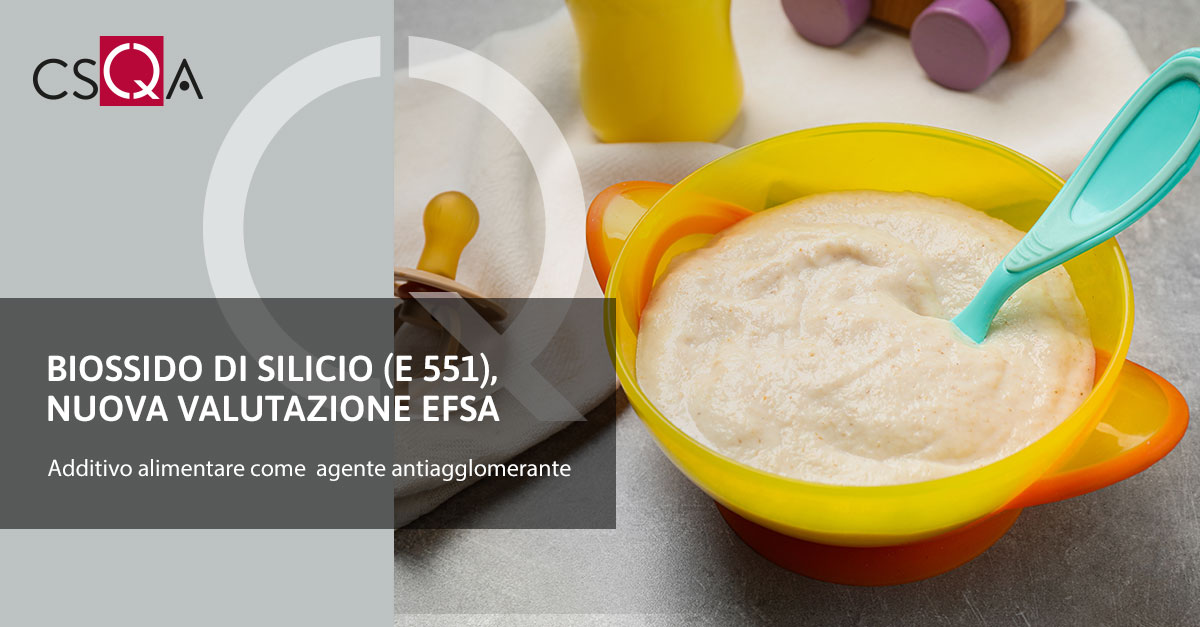 EFSA has published the re-evaluation of silicon dioxide (E 551) , an anti-caking agent , which prevents dry powdered foods from sticking together.
EFSA has published the re-evaluation of silicon dioxide (E 551) , an anti-caking agent , which prevents dry powdered foods from sticking together.It is approved for use in various foods, including foods intended for infants under 16 weeks of age.
The analysis also examined the safety of the compound for the general population.
In 2018, EFSA's scientific panel had already reviewed the safety of E 551.
This scientific opinion was part of a wider re-evaluation of all food additives already authorised in the EU before 2009.
At that time, the expert panel concluded that the available information was insufficient to adequately characterise E 551 and to establish an acceptable daily intake (ADI).
It was also unable to provide a safety assessment of the use of E 551 in formulae for infants under 16 weeks of age because the required scientific guidelines were still under development.
The European Commission has therefore requested a new, more in-depth assessment , with particular attention to the risks to newborns.
Main results
The review indicated that, although the bioavailability of silicon dioxide is likely low in humans, currently available data do not allow for accurate quantification of the absorption of this compound.Consequently, EFSA recommended applying a margin of exposure (MOE) rather than setting an Acceptable Daily Intake (ADI).